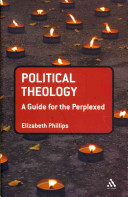
The journal Political Theology recently released a new issue, 21:4, guest edited by Paul Billingham and Jonathan Chaplin. It is part of an initiative to gather political theorists interested in religion and scholars of religion interested in political theory, and it is being published in coordination with a special issue of the journal Social Theory and Practice.

We have all been around people who constantly tell stories in which the person telling the story is also the clear hero of the story. And none of us wants to be that person. I think this should be the case not only in the sharing of personal anecdotes, but in the stories we tell one another professionally about our professional lives, so it would be disingenuous to write a series on teaching political theology which leaves readers with the impression that I have it all figured out (or think that I do!). This month I want to share a story about a particularly persistent problem in teaching political theology – one to which I will not suggest I have the answer.